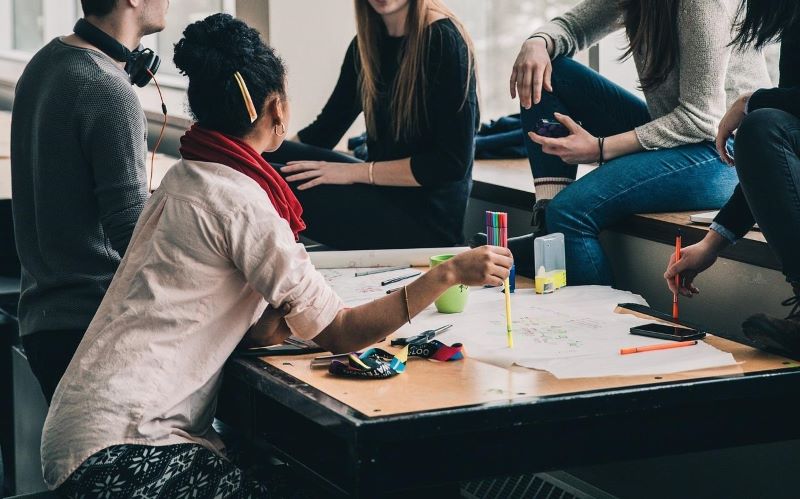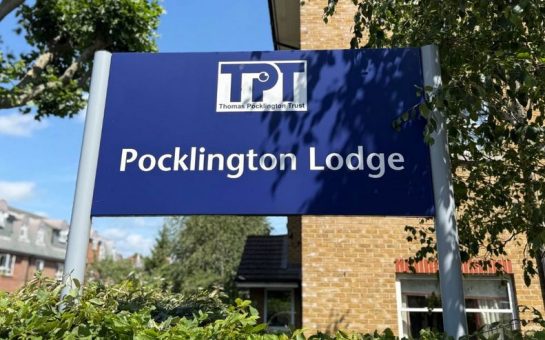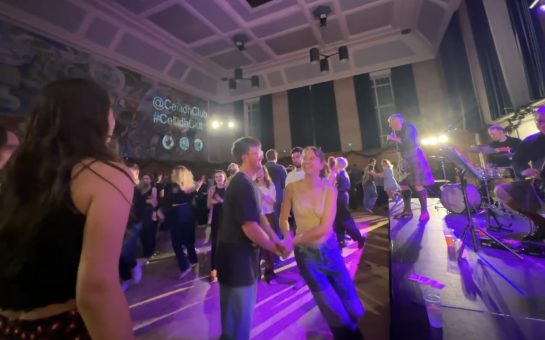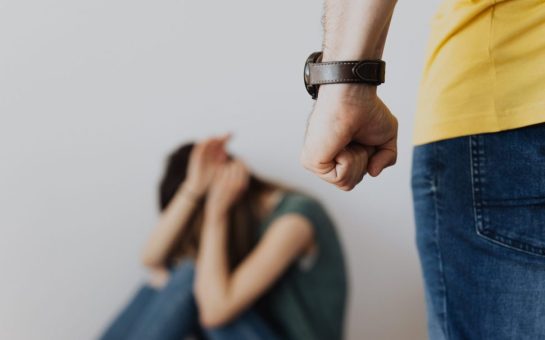The crises facing England—cost of living, climate, supply chain, war—will have repercussions for years to come, but younger generations who will be most impacted face barriers to political participation.
A few organisations are working to change that by tackling what many youth and educators say is at the root of the problem: a lack of political literacy education in schools.
Political literacy education is patchy
The Citizenship curriculum, which teaches students about politics and society, has been compulsory for secondary students in England and Wales since 2002.
But a 2021 report from the London-based political education group Shout Out UK (SOUK) found that less than a third of schools are offering weekly lessons in the curriculum.
A fifth of schools are offering none.
“Pretty much every other high-income country – Australia, Finland, Norway, even America – has a pretty sophisticated political literacy element in their schools,” said Lucie Spicer, head of education and technology for SOUK, which was founded in 2015.
“So England is quite outdated.”
The Association for Citizenship Teaching (ACT) blames this partly on the Government, which cut funding for teacher training and shifted education policy to prioritise subjects like maths and English.
This means the quality of political education in England is patchy and largely dependent on a school’s resources.
Independent schools are more likely to offer dedicated lessons than state schools, for example.
How political education groups are engaging young voters
To help bridge the gap, SOUK runs courses to teach young people about the political system and skills such as how to contact their representatives, vote, and recognise disinformation.
Spicer said the organisation also works hard to reach youth from underrepresented communities who are more likely to feel political apathy.
Rico Thai-Richards, 18, from Walthamstow identifies strongly with this.
He said: “Before, I used to think politics was just for rich kids, privileged kids, because Conservatives don’t represent people that don’t come from a privileged background.”
Thai-Richards said he and his peers also feel the education system does not prepare them to be engaged citizens.
Instead, he is learning about governance with I Have a Voice (IHAV), which launched in early 2020 to help young people understand the political system and translate their activism into action.
Founder Rebecca Deegan said in the early days of the pandemic, she saw a ‘political awakening’ among youth who realised, some for the first time, that decisions made by politicians directly impact their lives.
At the same time, Deegan worried that political divisiveness was alienating them.
She said: “I was seeing that result in a lack of political engagement from the very people who needed to be engaged.
“So I set up I Have a Voice to reach out to classrooms and youth groups, in areas where there are particularly low levels of political engagement.”
The majority of IHAV’s youth participants are from low-income households, and a high proportion of them are Black, Asian, and from minority ethnic backgrounds.
IHAV also helps young people register to vote and get involved in local elections.
Last year, IHAV reached 16,500 young people, and ahead of the recent 5 May elections, Deegan trialled a new model in which she trained ‘youth ambassadors’ to run their own outreach campaigns across London.
One of these ambassadors was Fatima Yusuf, 18, who ran workshops at her school in Hounslow and used Instagram and TikTok to tell peers about the upcoming election and answer their questions.
Elsewhere, London School of Economics student Kajal, 19, returned to her secondary school to help Year 12 students register to vote.
Kajal said: “We gave them a five-minute window to register to vote, and they genuinely had no idea that they needed to register.
“We’ve never really been taught about it at school, so I think for a lot of people, it doesn’t really feel like something they want to do. It’s more an adult chore.”
The future of the political curriculum
Spicer said educators need support too, as non-specialist teachers must pick up the slack when a school does not have a dedicated Citizenship teacher.
A SOUK survey found that while most of these teachers feel responsible for developing students’ political literacy, only 1% feel prepared to do so.
The group trains them to talk about hot button issues in a non-biased way and support students’ critical thinking.
This is no small task.
Spicer said: “Teachers have so much on their plate.
“To be told, not only do you have to teach a curriculum, do loads of pastoral care and social work, now you also need to be politically literate and make sure young people understand the world around them – it’s not fair, structurally.
“The ultimate aim is to have an enhanced political literacy GCSE embedded in every school.”
In other words, ideally SOUK and IHAV will one day work themselves out of a job.
And the task of teaching political literacy to all students—regardless of income or geography—will be carried out by schools all equally equipped for the challenge.





Join the discussion